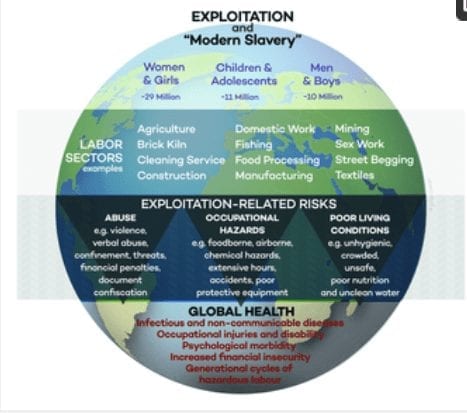
Human trafficking and exploitation: A global health concern
While migration within and across national borders has been an economic and social mobility strategy that has benefited millions of people around the world, there is growing recognition that labor exploitation of migrant workers has become a problem of global proportions. Human trafficking and other forms of extreme exploitation, including forced labor and forced marriage, now collectively under the terminological umbrella “modern slavery,” are reported to affect an estimated 40.3 million people globally, with 29.4 million considered to be in situations of forced labor. PLOS is launching a collection of essays and research articles on “Human Trafficking, Exploitation and Health” to increase awareness of the connection between human trafficking and global health, and to urge health and nonhealth professionals alike to engage in international and local responses to protect the health of individuals and populations affected by trafficking.
In this introduction to the Collection on Human Trafficking, Exploitation and Health, we describe the magnitude of the problem, discuss the complex characteristics of trafficking, indicate the harm and associated health burden of trafficking, and offer a public health policy framework to guide robust responses to trafficking. Ultimately, however, in this introductory paper, we assert that human trafficking is a global health concern. That is, the health consequences of human trafficking are so widespread and severe that it should be addressed as a public health problem of global magnitude. Furthermore, because human trafficking has pervasive global health implications, we propose that these abuses—and perhaps labor exploitation more generally—be treated as preventable.
